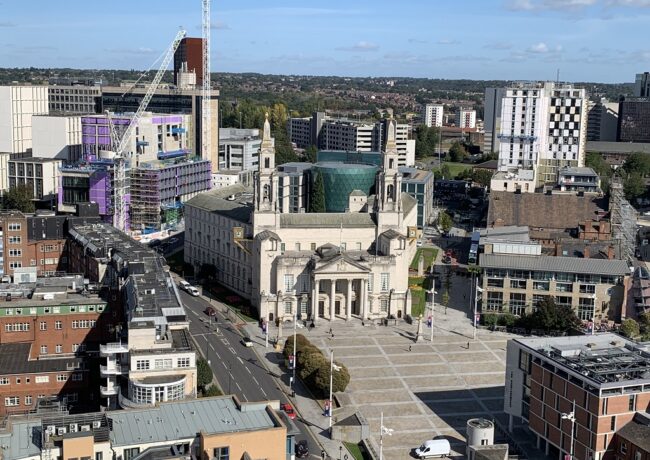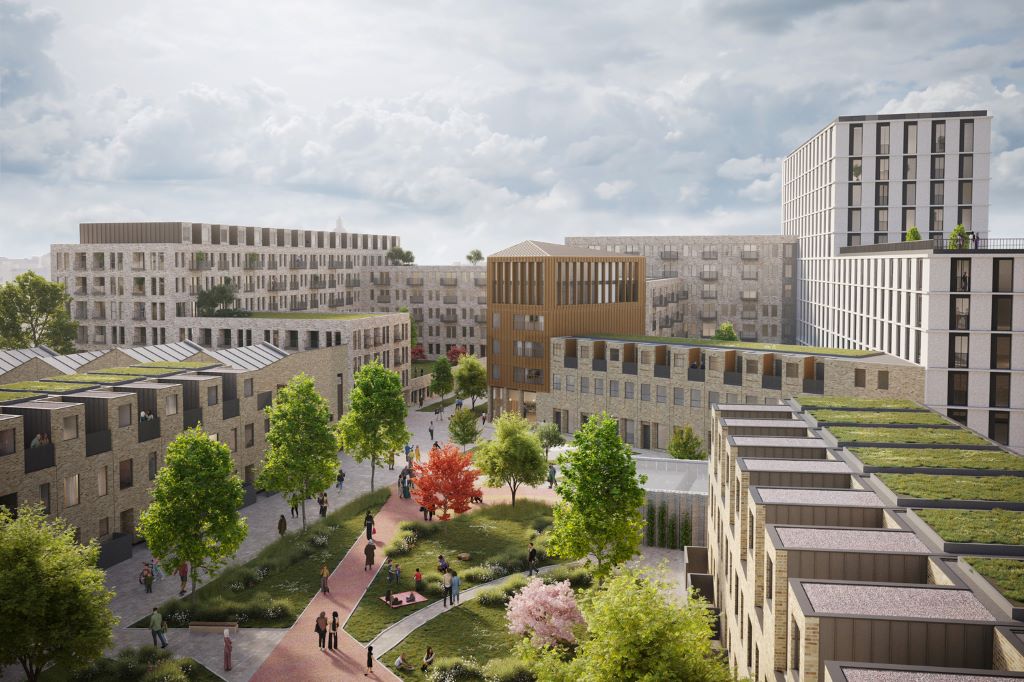Renting a home in Leeds costs 29% more than in 2020, says JLL
Leeds has recorded its fourth consecutive year of residential rental growth, according to the latest research from JLL.
Renting a one-bed flat in Leeds today will cost £850/month and a three-bed £1,850/month, JLL said. Growth actually slowed in the past year at 3.9% after three years of strong growth.
The ‘Big Six’ research tracks residential development activity, prices and rents across Leeds, Manchester, Birmingham, Bristol, Edinburgh, and Glasgow.
The rise in rental values was exacerbated by a 13% stock drop since before the pandemic, and a rise in renewals. A more competitive rental market and higher mortgage rates deterring prospective first-time buyers all contributed.
The increase in rents across the six cities clearly demonstrates not only the demand for city centre living but also the need for more homes. This is not exclusive to the rental market, with a requirement for more homes of all tenures needed to address demand.
Sales values grew by 1.9%, slightly below the 2% annual increase seen across the big six collectively. One-bed homes in Leeds were the only property type to record an annual fall in prices, down 3.2% on June 2022, but prime house price growth for two- and three-bedroom properties rose by 16.4% and 8% respectively.
Tom McWilliams, head of Yorkshire and North East and regional development at JLL, commented: “Leeds has enjoyed a sustained period of growth across both the sales and lettings markets for the last few years, as greater investment in the city centre has fuelled increased migration of professionals and students. Although the rate of growth has slowed, we’re continuing to see demand from these groups so we anticipate that higher value growth is on the horizon unless the dearth of supply of suitable homes can be addressed.
“If we are to compete with other regional cities to attract the best talent and businesses, then we need to provide adequate housing to support this. With a number of exciting projects ongoing, we should see some of this demand fulfilled, but it is imperative that we keep building homes in the places that people need them.”
Louise Emmott, managing director at Kingsdene, added: “Despite seeing a significant increase in both population size and inward investment, Leeds has not yet been able to deliver enough housing to satiate this growing demand. It has many of the same characteristics that have made neighbouring Manchester so successful, but this potential is not yet being fully harnessed so it is crucial that this supply is increased to continue to attract people to the region and provide them with good quality homes close to major employment opportunities.”
Marcus Dixon, director of UK residential research at JLL, said: “Younger residents and students are continuing to drive demand across the UK’s regional cities, as they prioritise the neighbourhood in which they live and access to key amenities. This is a trend that we expect to continue, particularly as young professionals seek employment opportunities outside of the capital due to cost of living pressures.
“What has become clear through our analysis is that neither the sales nor rental market is currently able to keep up with demand. With fewer landlords entering the market, and the rate of new builds slowing, government intervention is needed to restimulate the market and ensure that there are enough homes for the people that need them. By creating opportunities for people to live and work in our regional cities, it will stimulate further inward investment and contribute to the success of our cities.”





